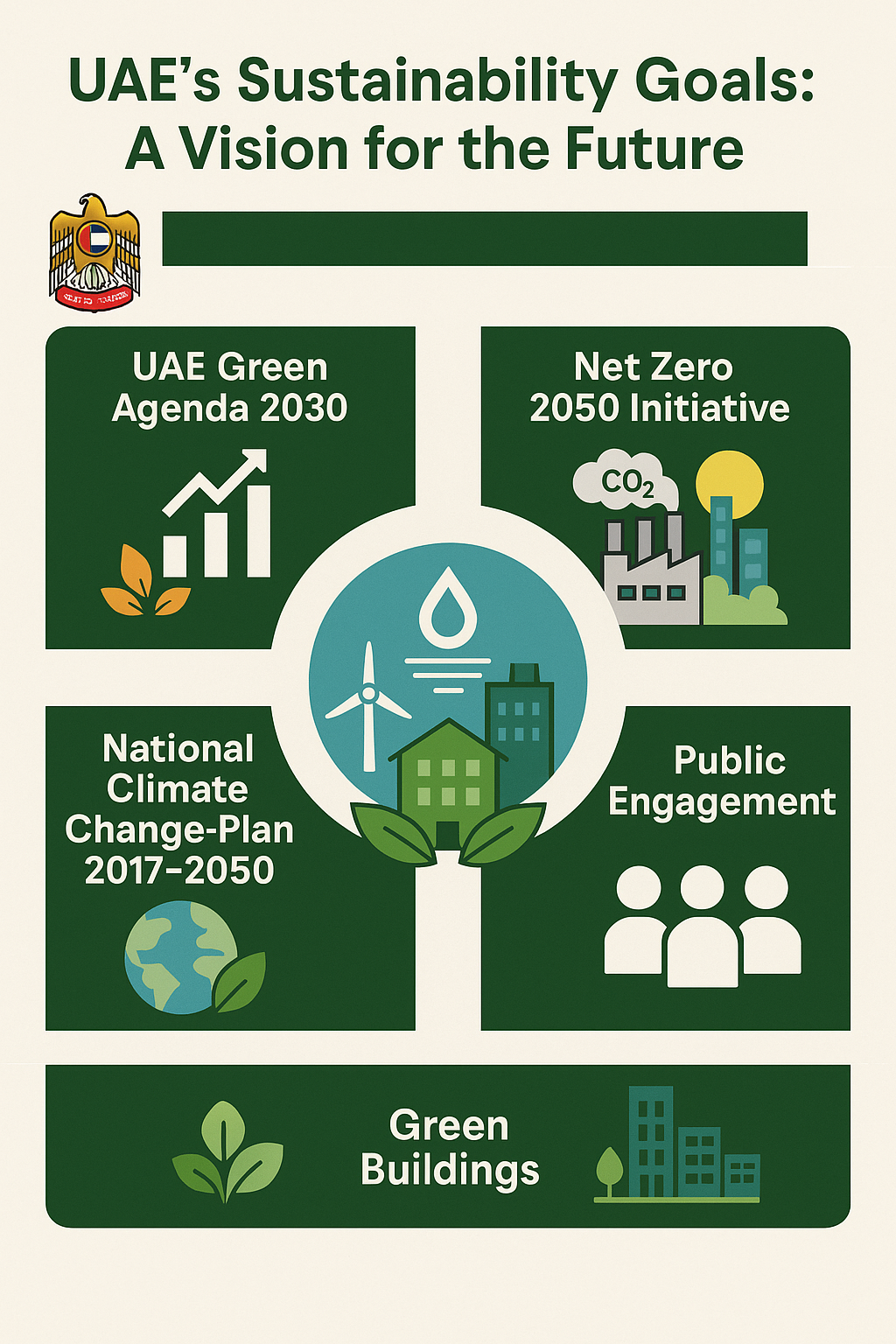The United Arab Emirates (UAE) has rapidly emerged as a global leader in sustainability, showcasing its ambition through bold strategies, visionary leadership, and international cooperation. Driven by a desire to create a thriving, low-carbon economy, the country’s sustainability goals are embedded in long-term national development agendas such as UAE Vision 2021, UAE Centennial 2071, and the National Agenda 2021, all aiming to create a competitive, knowledge-based, and sustainable economy.
One of the most defining pillars of this vision is the UAE Green Agenda 2030, which guides the country’s transition toward a green economy. This agenda supports economic diversification through low-carbon pathways, promotes innovation in clean technology, and encourages eco-friendly urban development. The Green Agenda aligns with the global Sustainable Development Goals (SDGs), signaling the UAE’s commitment to international climate agreements.
Alongside this is the National Climate Change Plan (2017–2050), a robust policy roadmap to address the pressing challenges of climate change. This plan focuses on three key pillars: mitigation of greenhouse gas emissions, climate adaptation, and fostering private sector engagement in green innovation. By incorporating cross-sectoral collaboration, it ensures that climate action is embedded in all areas of governance.
A landmark initiative underlining the UAE’s leadership is the Net Zero by 2050 strategic commitment. As the first country in the Middle East and North Africa (MENA) region to make such a pledge, the UAE aims to eliminate net greenhouse gas emissions by mid-century. This aligns the nation with the Paris Agreement and signals strong climate responsibility at a global scale. Achieving this target will involve sweeping changes in energy production, urban development, mobility systems, and industrial processes.
Sustainability is also at the core of the UAE’s built environment transformation. As cities grow, urban planning is increasingly aligned with green building standards, such as LEED (Leadership in Energy and Environmental Design). Governmental bodies and private developers alike are recognizing the value of sustainable buildings, both in reducing environmental impact and improving human health and well-being.
Here, the role of LEED Consultancy UAE becomes invaluable. These expert services guide construction projects through the complexities of green certification, from energy modeling to documentation, helping developers meet local and international standards. The adoption of LEED in high-profile developments—offices, hotels, educational institutions, and residential complexes—is a testament to the UAE’s environmental ambitions.
Beyond infrastructure, the UAE is also investing in renewable energy megaprojects. The Mohammed bin Rashid Al Maktoum Solar Park, for example, is set to become one of the largest single-site solar parks in the world, contributing to the goal of generating 50% of power from clean sources by 2050. In addition, advancements in green hydrogen production and waste-to-energy plants are broadening the country’s renewable energy portfolio.
Water conservation and efficient waste management are also core components of national sustainability goals. Through the promotion of water-saving appliances, wastewater reuse, and desert agriculture innovation, the UAE is addressing its water scarcity challenges. On the waste front, circular economy strategies, recycling incentives, and landfill diversion programs are steadily gaining traction.
Education and public awareness are equally important. The UAE actively involves its citizens through community-based environmental programs, school curricula, and public sector green campaigns. Initiatives like “Clean UAE”, tree planting drives, and plastic reduction efforts help instill eco-conscious habits among residents.
In conclusion, the UAE’s sustainability goals are more than just policy targets—they are the foundation of a national transformation. These goals are deeply integrated into energy, transport, construction, waste, water, and education systems. By engaging all stakeholders—from government and private sector to civil society—the UAE is setting a global benchmark for sustainability.
For investors, developers, and consultants seeking to contribute meaningfully to this transformation, LEED Consultancy UAE offers the tools and expertise needed to align with the country’s green vision. With the right strategies and partnerships, the UAE is not just imagining a sustainable future—it is building one.

